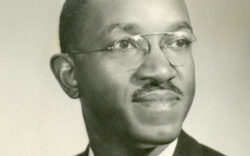The Ol’ Bloviator has not gotten so old that he doesn’t recall ranting about the “get-drunk-party-till-you-puke-or-pass out-or-both” culture that dominates the student scene at far too many of our universities these days.
Since this comprehensive report on the pathological potential of booze-fueled fraternity life ran in The Atlantic a while back, outrageous accounts of massive alcohol abuse linked to deaths, physical injury and especially to sexual assault, have become standard fare in major newspapers and magazines. Despite individual and programmatic efforts by campus administrators to curb it, binge drinking appears to be a regular activity for four in 10 of today’s students. Recent data shows roughly 1,800 college students die each year from some sort of alcohol-related injury, and some 97,000 annually report sexual assaults where alcohol was a contributing factor.
Escalating concerns about rapes committed on and around campus took on even greater urgency after Rolling Stone’s recent piece about this problem at no-less-storied an institution than “Mr. Jefferson’s University” in Charlottesville, VA, which was already under serious federal scrutiny for its inadequate handling of previous sexual assault charges. RS’s report centered on “Jackie,” a female student who claimed that she had been brutally gang-raped as a freshman after attending a party at the Phi Kappa Psi house in 2012 and that, while apparently sympathetic, university officials discouraged her from pursuing her claim or discussing the incident publicly and took no action against her accused assailants.
Skeptical of some of the details of Jackie’s account, the Washington Post and other media outlets opted for a little fact-checking on their own and are now reporting that certain of her claims about the identity of her alleged assailant and the place and date of the alleged assault could not be corroborated, Rolling Stone’s representatives admit that they may have given Jackie too much benefit of the doubt and that they ran the story without securing comment from those she accused. Jackie continues to stand by her account, however, and her supporters point out that confusion about details is not uncommon among deeply traumatized victims of sexual assault. Still, this sorry and reckless excuse for journalism is certain to bolster the skepticism of those who think the prevalence sexual victimization on campus is overblown.
For their part, however, UVA administrators, who responded to the initial RS article by clamping down hard on Phi Kappa Psi and other campus fraternities, have not leapt forward to claim vindication merely by virtue of the holes poked in Jackie’s story as it was reported. Rather, in what may be a classic case of better late than never, they have reaffirmed their awareness that the university has some serious ’splainin’ to do where handling sexual assault charges is concerned. Thus quoth UVA prez Teresa Sullivan: “Over the past two weeks, our community has been more focused than ever on one of the most difficult and critical issues facing higher education today: sexual violence on college campuses. Today’s news must not alter this focus. Here at U.Va., the safety of our students must continue to be our top priority, for all students, and especially for survivors of sexual assault.”
This stance is, to say the least, prudent. Not only because of the federal investigators who continue to hover about, but because UVA’s history in this area demands it. The university’s “honor code,” which not only forbids acts of academic dishonesty but demands that students report such acts by others, is a genuine point of pride among students, faculty, and alums. The thing is, however, although 183 students have been expelled for honor-code violations since 1998, there is no record of a single matriculant having been expelled for sexual assault, including those who have admitted to it. Given the revelations of countless investigations and surveys of the incidence of sexual assaults on campus, a ratio of 183-0 would seem pretty hard to justify.
For all the questions about the details of Jackie’s personal account, the RS piece nonetheless provides credible evidence of an entrenched social hierarchy whose exclusiveness not only discourages female students from filing claims of sexual assault but aggressively stigmatizes and marginalizes those who do.
The OB has always wished that his own university could achieve a greater semblance of the powerful sense of academic purpose that pervades the UVA campus, and he still does. Secretly at least, he has also been taken with the notion as one student put it, “the most impressive person at UVA is the person who gets straight A’s and goes to all the parties.” The more he ponders the significance of such a student role model, however, the more the O.B. is forced to consider its full implications. What happens to all the kids bent on establishing their bonafides as both budding scholars and big-time drinkers, when pursuing both goals proves mutually exclusive? Outfit yourself with the emotional maturity of an 18-year-old, even a very bright one, and venture a guess as to which aim is most likely to be compromised.
All of the dangerous and potentially disastrous possibilities that arise when young people are put in a situation where they are free to choose beers over books (and most anything else) are brought home quite literally in this Chronicle of Higher Education story that shows our beloved Classic City virtually Dawg paddling in “a river of booze.” As these things go, this piece seems reasonably balanced, notably more so than the RS expose on UVA. There are concerned people, like UGA Police Chief Jimmy Williamson and alcohol counseling specialist Liz Prince, who seem to be doing what they can to reduce underage drinking or excessive drinking in a downtown which offers 50 bars within a quarter mile of campus, as well as roughly that many more restaurants that also serve alcohol.
Ironically, legend has it that Athens was chosen over nearby Watkinsville as the site for the nation’s first state-chartered university, because the latter was already home to a prospering tavern likely to corrupt the college lads. The writers trace Athens’s history as “a big booze town” to the 1980s when, with downtown businesses closing or migrating out to “mall-ville” and only a relatively few bars downtown, UGA officials began trying to cut down on drinking at frat houses, even issuing a ban on keggers.
Fearful that downtown would continue hemorrhaging businesses to the ’burbs, and eager to accommodate thirsty young collegians, municipal officials did not limit the number of bars or restaurants that started to pop up, especially after the city’s music scene exploded. Despite credible efforts to make bar owners and bouncers more accountable, however, for local officials, it all came down to, as one tavern-keeper put it, “they hate we’re here, but they love the money.” One reckons so, since Athens-Clarke County reportedly collects seven cents on the dollar for every mixed drink, in addition to a three-cent excise tax and a 22-cent levy for every bottle of booze emptied.
Needless to say, the proprietors of Athens’s drinking establishments are not particularly opposed to making money either, and they scramble mightily to keep their places packed into the wee hours. To remain competitive, some bars resort to unannounced “specials” involving one-cent beers, free drinks for women, etc., all of which are spread instantly across a vast network of texters and tweeters leading, practically in the blinking of an already bloodshot eye, to wholesale migration of committed young boozers from one watering hole to another. And so it goes, until mandatory closing hours force them to disgorge their drunken denizens onto the streets of Athens, where the scene can easily turn from celebratory to scary in the drooping of an eyelid.
For example, a Chronicle writer looks on as UGA police discover a young man “lying on a public bench, at the end of a trail of vomit. He is unconscious; his front pocket gapes, a wallet falling partway out. An officer shakes him, and again, finally rousing him. ‘How much,’ the officer demands, ‘have you had to drink?’” The kid’s response of “Zero, Zero?” is needless to say, undermined by his present condition and circumstances; the trusty Breathalyzer simply confirms the obvious, and he is off to jail. “I can’t just leave him on a bench with a citation in his pocket,” Chief Williamson explains. “A citation’s not going to sober him up.”
There is also the student who “has tripped and fallen after a night out and hit her head. Officers arrive to find Jacqueline, a 19-year-old with long, honey-colored hair, stretched out on the cold slab of a bus stop, surrounded by concerned friends. After falling, she was unresponsive, for maybe 30 seconds, maybe a minute or two—no one seems quite clear—but long enough to prompt a call to 911. Now an egg-shaped welt has begun to swell next to her right eye, and her speech is slurred. Asked who is the president of the United States, she names her sorority president.” (This is no laughing matter, of course, but the image of Barack Obama trying to bring a meeting of chatty Tri-Delts to order might well serve as a metaphor for his efforts with the Senate.) In this case, Jacqueline is bundled off to the ER, but UGA’s campus cops are reportedly making 900-1,000 underage drinking arrests a year, and although they have caught considerable flak for being too aggressive on this front, even casual observers of the early morning scene downtown will surely see this figure as indicative of a restrained approach.
It is hardly news that college students drink a lot and always have, but if you are using this to persuade yourself that there is nothing to be bothered about here, your head is buried not in sand, but concrete. As the writers note, “Average blood-alcohol levels in students stopped by the police have risen steadily—this year one blew a 0.33, more than four times the legal limit. With heavier drinking, the police now make drunk-driving arrests in midmorning, pulling over students on their way to class still intoxicated from the night before.”
The O.B. has no reason to doubt this based on the number of students he has encountered in morning classes who show up smelling as if they just crawled out of a vat of Natty Light and proceed immediately to surrender themselves to the clutches of Morpheus in a head-thrown-back, mouth-wide-open-pose that seems de rigueur when sleeping off a world-class bender. It is hard to think of a more underweighted or unrepresentative stat than the 25 percent of college students who admit to academic difficulties brought on by alcohol abuse. If you could throw in those who don’t even recognize this has happened and those who do but simply won’t admit it, that number would doubtless shoot up dramatically.
We might well yammer back and forth forever about whether universities or law enforcement officials have done enough to try to curb student alcohol abuse without realizing that we are letting one critical group of culpables off scot free. Chief Williamson notes that the mother of the aforementioned young “Zero, Zero,” who was found virtually insensate on a public bench, practically begging to be robbed and/or assaulted, did not take kindly to his arresting her innocent little boy. He is quick—and correct—to point out that, thanks to this kind of indulgent excuse for parenting, too many freshmen show up in Athens with a firmly established drinking habit as part of their baggage. Though he speaks to thousands of students a year about the dangers of excessive drinking, “How can I do something in five minutes,” he asks, that their parents “couldn’t do in 18 years?”
The Chronicle writer adds that “too many parents have failed to talk to their children about responsible alcohol use. They’ve looked the other way. They’ve dismissed binge drinking and other risky behavior with, ‘Kids will be kids.’”
In reality, so thinks the O.B. anyway, they have actually done worse than that by trying to be kids along with their kids, succumbing to some nostalgia-blinded notion that it’s OK to relive their own collegiate years through their children, as if the perils and pressures awaiting their college-bound offspring are no different than they were 30 years ago.
The O.B was around back then, and, in outright defiance of fate, gravity and public opinion, he is still around today. He knows better, and if the Moms and Dads of today’s collegians would drop the Peter Pan fantasy and face up to reality, they would, too.
It’s much easier, though, to abandon any pretense of trying seriously to discourage underage and/or excessive drinking, wink at fake I.D.s and reports of prodigious alcohol ingestion, and chuckle about Tara and Trey simply being chips off the old one-time champion chugger block. This may be a sure-fire way to endear yourselves to your kids but it’s also a no less certain means of putting them at greater risk.
The O.B. has never been too keen about universities operating in loco parentis, but by golly, when the parents abdicate their responsibilities and go plumb loco themselves, a poor substitute seems better than none.
Like what you just read? Support Flagpole by making a donation today. Every dollar you give helps fund our ongoing mission to provide Athens with quality, independent journalism.










